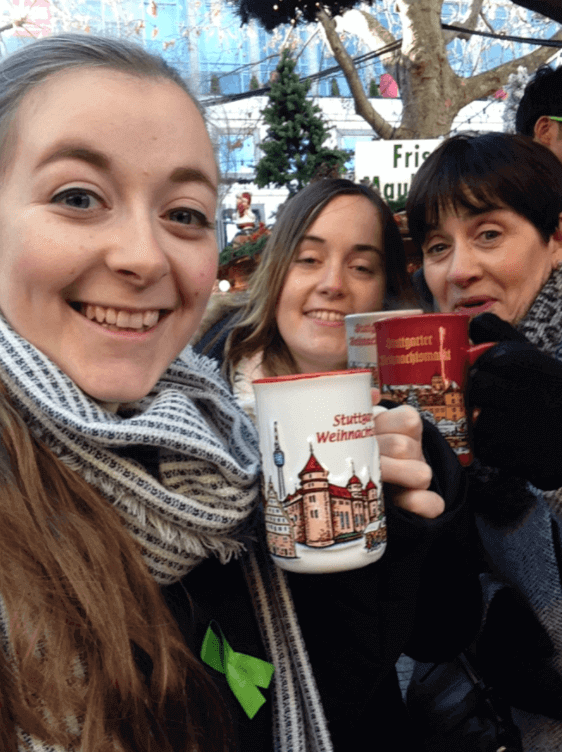Best private schools in France and their cost
Planning to move your family to France and looking for a private school? Check out our complete list of the best private schools in France and their cost.

Rachel Bermingham, studying at the University of Tübingen, Germany
In my opinion, the ultimate European experience is best described by ABBA: ‘Money, Money, Money’. I suggest even listening to it while you read this (both because it’s relevant and is just a great song).
Studying abroad costs money… quite a lot in fact. But it’s also very manageable.
FUN-ding (Funding your fun!)
The EU Erasmus+ grant - this is fantastic! I get €220 a month from the European Union to fund my life here. As I’m in Germany the monthly €220 is calculated in accordance with the cost of living here. European countries such as France, England, Italy receive slightly more (€280) due to the higher cost of living. A bottle of beer in a bar here costs about €2.50-€3 compared to around €4.50 in Ireland so it’s all relative.
Maynooth University, where my full-time course is, made this whole process much easier for me. They apply for the grants on our behalf once we submit a certificate of arrival, signed by our host university. There’s also a signed learning agreement. Which just tells your home uni what you’re going to study, essentially reassuring them that you’ll do some work at least...
My university decided to give my grant in 3 instalments, rather than on a monthly basis. This made for a few lean weeks of noodles in the run up to December, but a lot of happy faces the morning that our bank accounts took a dramatic leap upwards. This nicely coincided with the German Christmas markets opening, enjoyed best when you have money to spend!

Look into scholarships for studying abroad.
In particular with Germany, the DAAD (German Academic Exchange Service) offer scholarships. A whole list in fact...
It’s definitely worth noting that Masters programmes here cost either very little or are free. If you haven’t had the chance to study abroad as part of your undergraduate degree, a Masters is always an option.
Banking on it
Most places here don’t accept card as a form of payment, even the fanciest of restaurants.
Everything is paid for in cash, so either set up a German bank account or at least inform your home bank before leaving. The last thing you want is your card getting swallowed at an ATM because your bank suspects it’s been stolen.
I had to set up a German bank account here for dealing with rent. It’s possible to just put all of your money in that account and operate from that with a debit card. However, before deciding on a bank, take a stroll around the town and see how many you spot. In Tübingen, you are almost never more than about 300 metres from a ‘Kreissparkasse’ bank but there is only one ‘Deutsche Bank’ so choose carefully. It can cost up to €4 to withdraw money from a competitor's ATM.

There’s a lot of big expenses at the start like student levy, transport tickets and getting things for your apartment, so it’s wise to have some money saved up before you go.
Once you decide to study abroad, getting some form of part-time job can be really helpful.
Keep your Netflix subscription. Believe me, when you’re staying in trying to save money before your grant comes in, you’ll be very thankful you spent that €10 a month!
Check websites to sign up for student discounts. There are different offers in different countries so it’s really worth checking out, for example German students can get Spotify Premium for 50% less than normal!
Sign up with Wise to move your money to your new overseas bank account - you'll save a fortune.
In Germany at least, funding is all very manageable. However if you do find yourself struggling just before your next loan installment is due, you can always spend your last €3 on a glass of Glühwein to forget your troubles.

Rachel is on her year abroad at the University of Tübingen, studying Media & German. Twitter & Instagram: Rach_Bermingham
*Please see terms of use and product availability for your region or visit Wise fees and pricing for the most up to date pricing and fee information.
This publication is provided for general information purposes and does not constitute legal, tax or other professional advice from Wise Payments Limited or its subsidiaries and its affiliates, and it is not intended as a substitute for obtaining advice from a financial advisor or any other professional.
We make no representations, warranties or guarantees, whether expressed or implied, that the content in the publication is accurate, complete or up to date.

Planning to move your family to France and looking for a private school? Check out our complete list of the best private schools in France and their cost.

Planning to move to South Africa and looking for a private school? Check out our complete list of the best private schools in South Africa and their cost.

Planning to move your family to Ireland and looking for a private school? Check out our complete list of the best private schools in Ireland and their cost.

Considering teaching English in Japan? Explore our insightful guide on requirements, teaching programs, job prospects, salary expectations, and more.

Considering teaching English in Taiwan? Explore our insightful guide on requirements, teaching programs, job prospects, salary expectations, and more.

Considering teaching English in China? Explore our insightful guide on requirements, teaching programs, job prospects, salary expectations, and more.